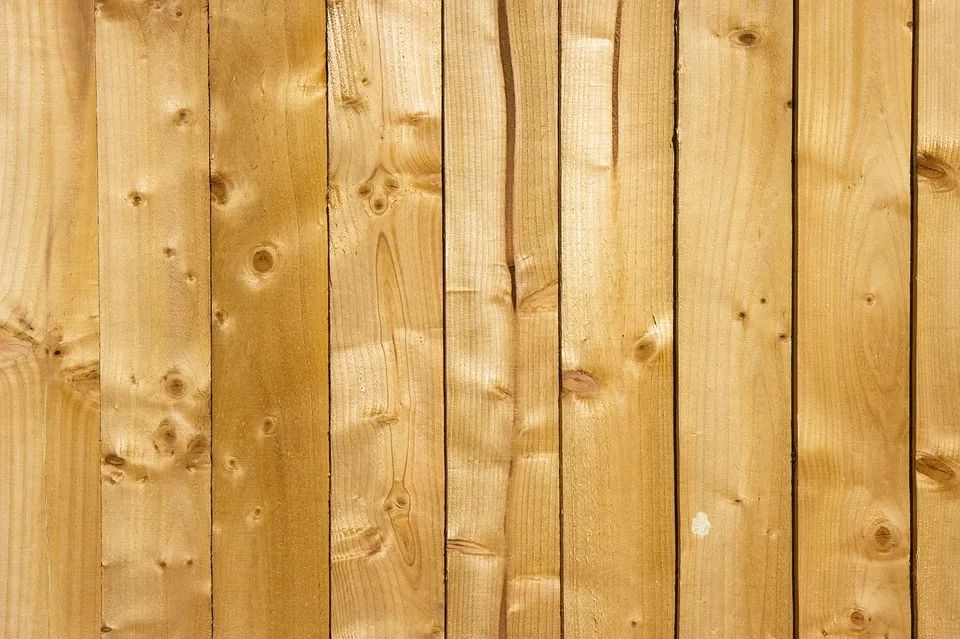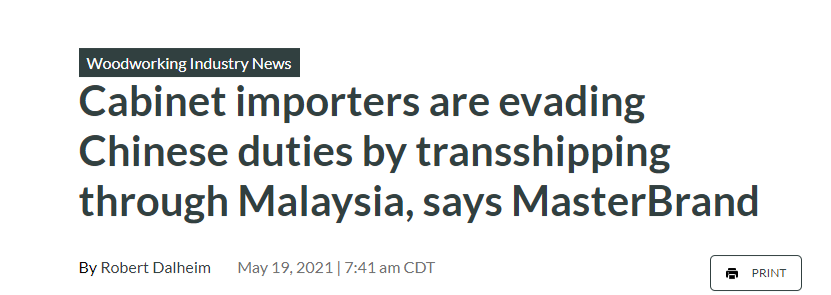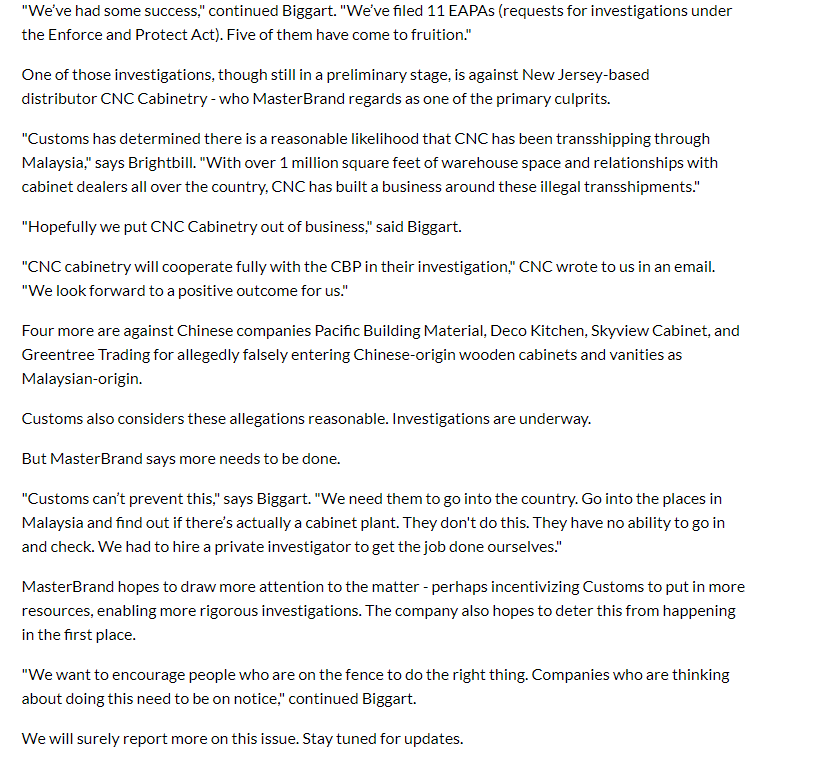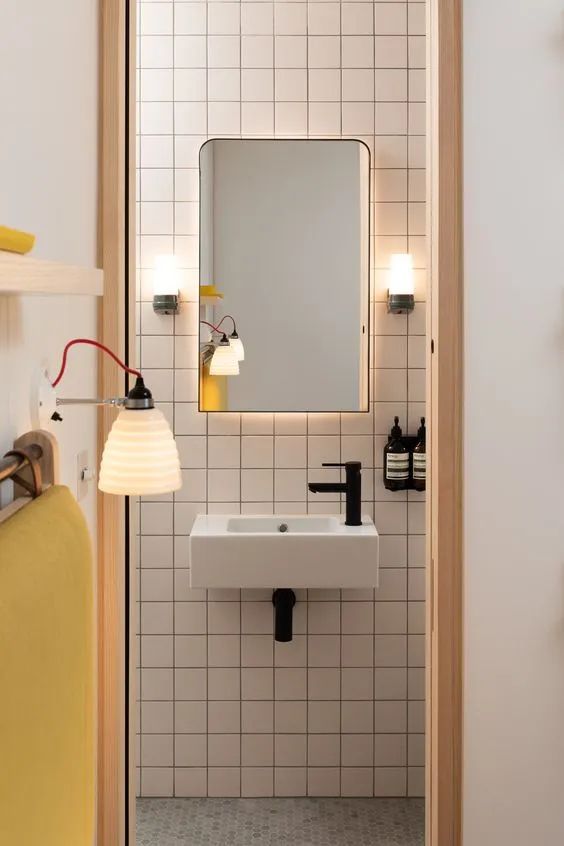Ụlọ ọrụ kichin na ụlọ ịsa ahụ Mainstream Media Kitchen na ozi ime ụlọ ịwụ

Dị ka akụkọ mgbasa ozi Vietnamese si kwuo, Otu Vietnam Timber and Forest Products Association (VIFORES) arịọla ndị otu ụlọ ọrụ etiti Vietnam dị mkpa ka ha mee nyocha oge niile nke ụlọ ọrụ na-enyo enyo (ndị na-ebubata ngwaahịa dị ize ndụ) na-eto ngwa ngwa na mbubata ma mee ihe n'oge.
It is reported that the association has sent a document to the Vietnam Ministry of Agriculture and Rural Development and the Vietnam Ministry of Industry and Trade. It contains information about the transit of Chinese bathroom cabinets and kitchen cabinets through Vietnam.
N'ime afọ abụọ gara aga, ọnụ ahịa mbupụ nke ngwaahịa osisi Vietnam abawanyela nke ukwuu. N'ime ọnwa atọ mbụ nke afọ a, Mbupụ nke Vietnam nke osisi na ngwaahịa osisi ruru 3.788 billion dollars, mmụba nke fọrọ nke nta ka ọ bụrụ 45% over the same period last year. 2020. Its exports to the US market exceeded US$2.29 billion, elu 77.02% from the same period in 2020, aza ajụjụ maka 61% of the total export turnover of the entire timber industry (compared to 50% n'otu oge ahụ n'afọ gara aga).
N'ihe gbasara mbubata, in the first three months of the year, Vietnam ebubata ihe fọrọ nke nta ka ọ bụrụ $729 million in wood products, elu 37.2% over the same period in 2020. N'etiti ha, ngwaahịa si China ruru 225 nde U.S. dollar, mmụba nke ihe karịrị 50 pasent, aza ajụjụ maka 31 pasentị nke ọnụ ahịa mbubata. N'etiti ha, dị ka kichin kichin, imports of bathroom cabinets were $30.17 nde, mmụba nke 41%. Imports of plywood were 49.27 nde U.S. dollar, mmụba nke 71%. Imports of solid wood sofa frame for 36.7 nde U.S. dollar, mmụba nke 46%.
The association noted that the strategy of Chinese wood importers located in Vietnam is to export components of kitchen and bathroom cabinets (ihe ize ndụ dị elu) site na China ruo Vietnam. Usoro a na-ahụkarị bụ imepe ụlọ ọrụ na Vietnam n'ime ikpeazụ 1-2 years and then import kitchen cabinets, akụkụ ụlọ ịsa ahụ na plywood, which is then exported to Vietnam for processing and assembly into finished products (with very low processing volume). Nke abụọ bụ na ụlọ ọrụ na Vietnam na-ebubata akụkụ na a “ihe ize ndụ” ma zụta ma ree ha n'etiti ụlọ ọrụ dị iche iche. Otu ụlọ ọrụ na-achịkọta akụrụngwa ngwaahịa ndị a wee bupụ ya na United States.
Dị ka akụkọ si kwuo, enweghị nkwenye ziri ezi nke ozi dị n'elu, mana otu Vietnam Timber and Forest Products Association arịọla ndị otu ụlọ ọrụ Vietnamese dị mkpa ka ha mee nyocha oge ụfọdụ na nyocha na mbupu na ime ihe megide ụlọ ọrụ nwere akara enyo..
Moen Brothers MasterBrand
Eboro “mbugharị na-akwadoghị” by Chinese importer in the US
imegide ndị asọmpi’ azụmahịa
Na mgbakwunye, according to recent reports in the U.S. media, Moen Brothers MasterBrand, a member of the KCMA American Cabinetmakers Association, which initiated the largest anti-dumping case against China, etinyela akwụkwọ mkpesa na U.S. Customs and Border Protection alleging that “importers are now avoiding duties by trans-shipping cabinets to Malaysia, Vietnam na Indonesia” to avoid customs duties. (Ejikọtara ya: Mkpebi ikpeazụ gafere n'otu ọnụ, United States manyere mgbochi mkpofu na imebi ọrụ nke ngafe 250% na ụlọ ịsa ahụ na kọbọd na China)
The company claimed that the number of bathroom cabinets imported from countries such as Vietnam, Malaysia and Indonesia increased by 1,000% or more.


MasterBrand agbala akwụkwọ 11 Arịrịọ ka ịga n'ihu na ebubo n'okpuru Iwu Enforce na Chebe, ise n'ime ha agbagoro akwụkwọ. Otu n'ime nyocha a lekwasịrị anya na ụlọ ọrụ CNC nke dabere na New Jersey, nke MasterBrand kwenyere na-ewulite azụmahịa ya site n'inwe ihe karịrị 1 nde square ụkwụ nke oghere ụlọ nkwakọba ihe na ime ka mmekọrịta ya na ndị na-ere kabinet dị na U.S. MasterBrand nwere olile anya imebi azụmahịa CNC site na nke a.
Ụlọ ọrụ China anọ ọzọ, Ihe Owuwu Pacific, Ningbo Deco kichin, Skyview Cabinet, and Greentree Trading, eboro ya ebubo.
Nnyocha na-aga n'ihu.

Ozi metụtara.
Iwu mmanye na nchekwa (Iwu mmanye na nchekwa,) nke United States, e guzobere n'okpuru Nkebi 421 nke Trade Facilitation na Trade Enforcement Act nke 2015 (TFETE). The EAPA system is designed to prevent and sanction evasion of anti-dumping and countervailing duty orders.
EAPA nwere uru nke ịmepụta ọtụtụ ndị sonyere na nkesa ozi ka ukwuu na usoro nghọta maka ime nyocha nchụpụ ọrụ mgbochi mkpofu/nkwụghachi ụgwọ ọrụ..
It requires CBP to determine whether there has been an evasion of a duty order during a specific period of time and to make a determination.
It gives CBP new tools to investigate allegations and to gather information from the applicant, onye mbubata, onye na-emepụta ihe / onye na-ebupụ mba ọzọ, na ọbụna ọchịchị mba ọzọ.
It allows investigating parties to object to and challenge CBP’s rulings by applying for administrative review, nke nwekwara ike soro site na mkpesa na U.S. Ụlọikpe nke International Trade (Ụlọikpe ahụ) maka nyocha ikpe.
 iVIGA Tap Factory Supplier
iVIGA Tap Factory Supplier
